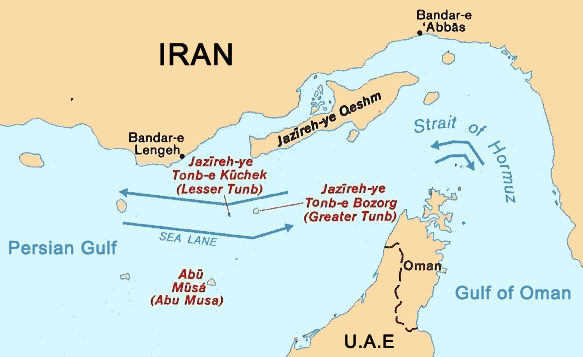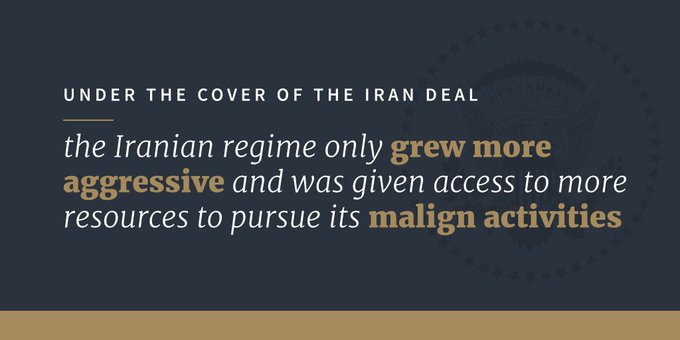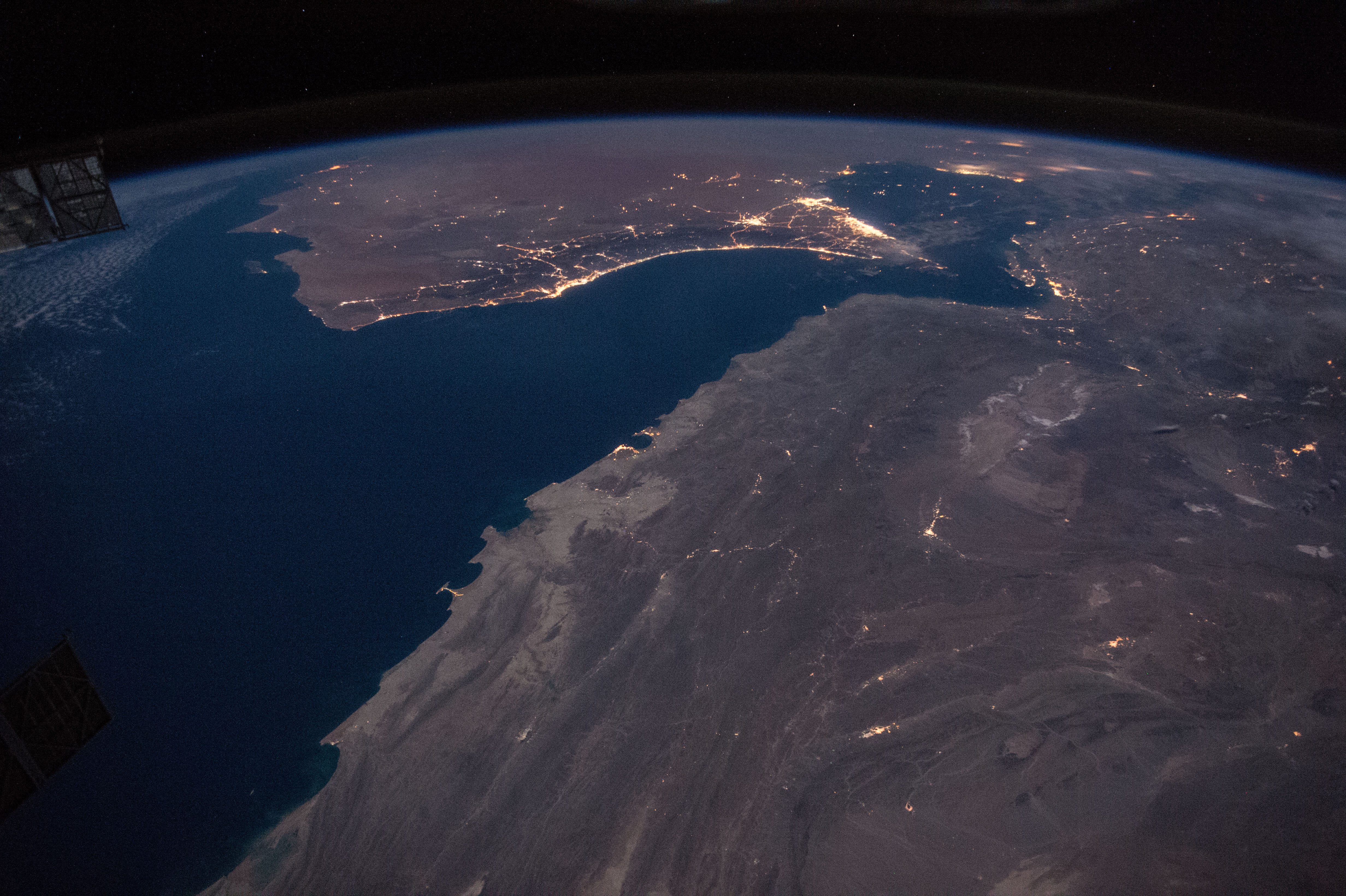PEPE ESCOBAR: War on Iran & Calling America’s Bluff
Vast swathes of the West seem not to realize that if the Strait of Hormuz is shut down a global depression will follow, writes Pepe Escobar.
By Pepe Escobar
Special to Consortium News
 The Trump administration once again has graphically demonstrated that in the young, turbulent 21st century, “international law” and “national sovereignty” already belong to the Realm of the Walking Dead.
The Trump administration once again has graphically demonstrated that in the young, turbulent 21st century, “international law” and “national sovereignty” already belong to the Realm of the Walking Dead.President Trump’s decision to withdraw from the Iran deal upheld his highest obligation: to protect the safety and security of the American people.
Why Iran sanctions are necessary: http://45.wh.gov/SUUPiW
1,121 people are talking about this
The eight nations are a mix of Eurasian powers: China, India, Japan, South Korea, Taiwan, Turkey, Italy and Greece.
Apart from the trademark toxic cocktail of hubris, illegality, arrogance/ignorance and geopolitical/geo–economic infantilism inbuilt in this foreign policy decision, the notion that Washington can decide who’s allowed to be an energy provider to emerging superpower China does not even qualify as laughable. Much more alarming is the fact that imposing a total embargo of Iranian oil exports is no less than an act of war.
Ultimate Neocon Wet Dream
Those subscribing to the ultimate U.S, neocon and Zionist wet dream – regime change in Iran – may rejoice at this declaration of war. But as Professor Mohammad Marandi of the University of Tehran has elegantly argued, “If the Trump regime miscalculates, the house can easily come crashing down on its head.”
Reflecting the fact Tehran seems to have no illusions regarding the utter folly ahead, the Iranian leadership — if provoked to a point of no return, Marandi additionally told me — can get as far as “destroying everything on the other side of the Persian Gulf and chasing the U.S. out of Iraq and Afghanistan. When the U.S. escalates, Iran escalates. Now it depends on the U.S. how far things go.”
Please Make a Donation to Our
Spring Fundraising Drive Today!
Spring Fundraising Drive Today!
This red alert from a sensible academic perfectly dovetails with what’s happening with the structure of the Islamic Revolutionary Guard Corps (IRGC) — recently branded a “terrorist organization” by the United States. In perfect symmetry, Iran’s Supreme National Security Council also branded the U.S. Central Command — CENTCOM — and “all the forces connected to it” as a terrorist group.
The new IRGC commander-in-chief is Brigadier General Hossein Salami, 58. Since 2009 he was the deputy of previous commander Mohamamd al-Jafari, a soft spoken but tough as nails gentleman I met in Tehran two years ago. Salami, as well as Jafari, is a veteran of the Iran-Iraq war; that is, he has actual combat experience. And Tehran sources assure me that he can be even tougher than Jafari.
 In tandem, IRGC Navy Commander Rear Admiral Alireza Tangsiri has evoked the unthinkable in terms of what might develop out of the U.S. total embargo on Iran oil exports; Tehran could block the Strait of Hormuz.
In tandem, IRGC Navy Commander Rear Admiral Alireza Tangsiri has evoked the unthinkable in terms of what might develop out of the U.S. total embargo on Iran oil exports; Tehran could block the Strait of Hormuz.
Western Oblivion
Vast swathes of the ruling classes across the West seem to be oblivious to the reality that if Hormuz is shut down, the result will be an absolutely cataclysmic global economic depression.
Warren Buffett, among other investors, has routinely qualified the 2.5 quadrillion derivatives market as a weapon of financial mass destruction. As it stands, these derivatives are used — illegally — to drain no less than a trillion U.S. dollars a year out of the market in manipulated profits.
Considering historical precedents, Washington may eventually be able to set up a Persian Gulf of Tonkin false flag. But what next?
If Tehran were totally cornered by Washington, with no way out, the de facto nuclear option of shutting down the Strait of Hormuz would instantly cut off 25 percent of the global oil supply. Oil prices could rise to over $500 a barrel, to even $1000 a barrel. The 2.5 quadrillion of derivatives would start a chain reaction of destruction.
Unlike the shortage of credit during the 2008 financial crisis, the shortage of oil could not be made up by fiat instruments. Simply because the oil is not there. Not even Russia would be able to re-stabilize the market.
It’s an open secret in private conversations at the Harvard Club – or at Pentagon war-games for that matter – that in case of a war on Iran, the U.S. Navy would not be able to keep the Strait of Hormuz open.
Russian SS-NX-26 Yakhont missiles — with a top speed of Mach 2.9 — are lining up the Iranian northern shore of the Strait of Hormuz. There’s no way U.S. aircraft carriers can defend a barrage of Yakhont missiles.
Then there are the SS-N-22 Sunburn supersonic anti-ship missiles — already exported to China and India — flying ultra-low at 1,500 miles an hour with dodging capacity, and extremely mobile; they can be fired from a flatbed truck, and were designed to defeat the U.S. Aegis radar defense system.
What Will China Do?
The full–frontal attack on Iran reveals how the Trump administration bets on breaking Eurasia integration via what would be its weakeast node; the three key nodes are China, Russia and Iran. These three actors interconnect the whole spectrum; Belt and Road Initiative; the Eurasia Economic Union; the Shanghai Cooperation Organization; the International North-South Transportation Corridor; the expansion of BRICS Plus.
So there’s no question the Russia-China strategic partnership will be watching Iran’s back. It’s no accident that the trio is among the top existential “threats” to the U.S., according to the Pentagon. Beijing knows how the U.S. Navy is able to cut it off from its energy sources. And that’s why Beijing is strategically increasing imports of oil and natural gas from Russia; engineering the “escape from Malacca” also must take into account a hypothetical U.S. takeover of the Strait of Hormuz.
A plausible scenario involves Moscow acting to defuse the extremely volatile U.S.-Iran confrontation, with the Kremlin and the Ministry of Defense trying to persuade President Donald Trump and the Pentagon from any direct attack against the IRGC. The inevitable counterpart is the rise of covert ops, the possible staging of false flags and all manner of shady Hybrid War techniques deployed not only against the IRGC, directly and indirectly, but against Iranian interests everywhere. For all practical purposes, the U.S. and Iran are at war.
And let’s see whether the EU has grown a spine — and really turbo-charge their Special Purpose Vehicle (SPV) alternative payment network conceived after the Trump administration ditched the JCPOA. Because more than breaking up Eurasia integration and implementing neocon regime change, this is about the ultimate anathema; Iran is being mercilessly punished because it has bypassed the U.S. dollar on energy trade.
Pepe Escobar, a veteran Brazilian journalist, is the correspondent-at-large for Hong Kong-based Asia Times. His latest book is “2030.” Follow him on Facebook.






Geen opmerkingen:
Een reactie posten